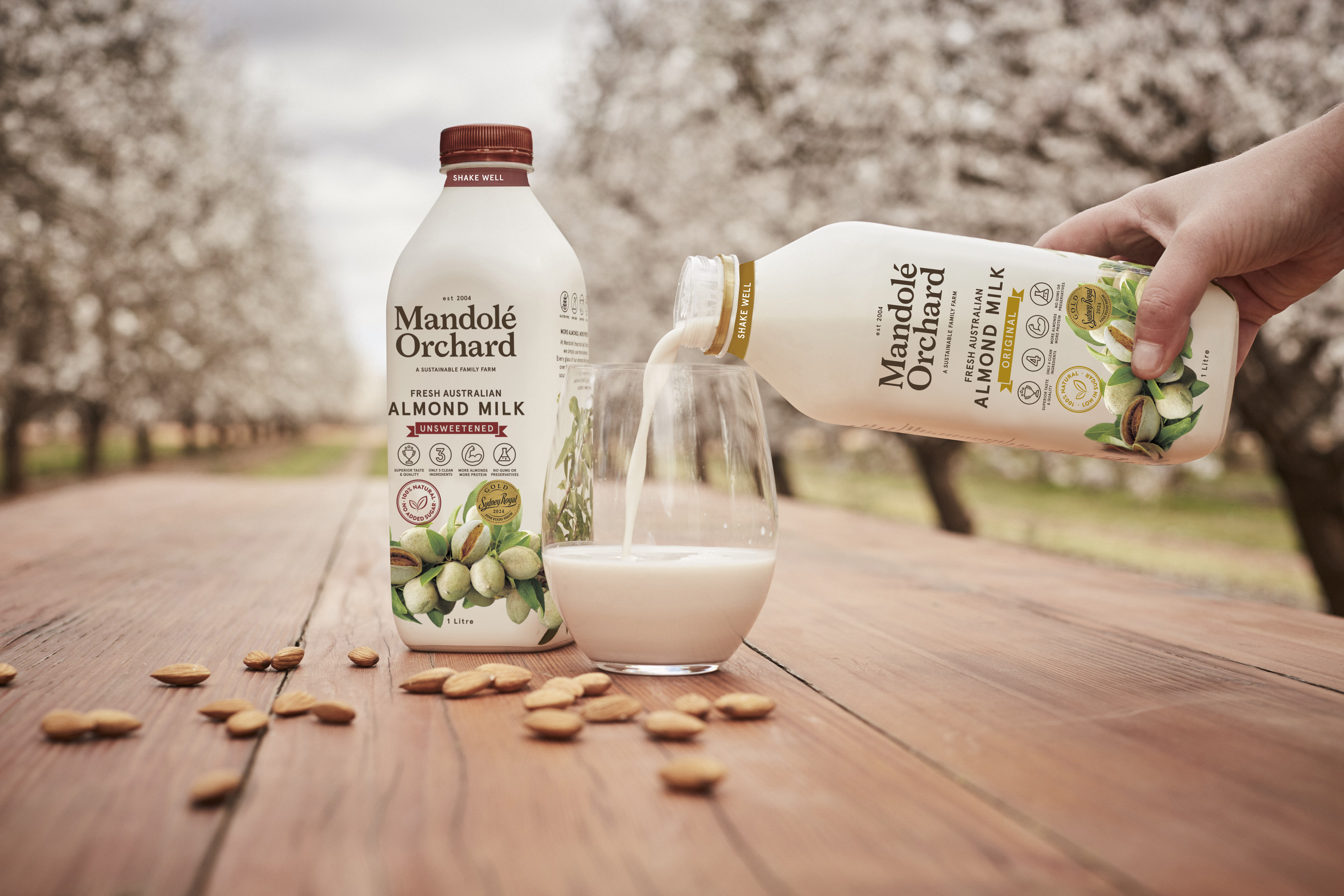For centuries, cow’s milk has been a household staple, providing a familiar source of protein, calcium, and other nutrients.
In recent times a growing number of people are now seeking milk alternatives for various reasons, such as dietary restrictions, ethical considerations, environmental concerns, or personal taste preferences.
Thankfully, there is a wide array of dairy alternatives available, each offering its own set of benefits and drawbacks.
If you’ve been wondering which alternative to cow’s milk might fit best into your health goals, look no further. In this article, we’ll evaluate four popular options—almond, soy, coconut, and oat—to help you make informed choices when shopping for the best milk alternative.
Why Consider Alternatives to Cow’s Milk?
Before diving into each option, it’s helpful to understand why people are considering other milks in the first place:
Lactose Intolerance or Dairy Sensitivity: Many individuals experience digestive issues when consuming lactose, the sugar found in cow’s milk. Milk alternatives are naturally lactose-free, making them a gentler choice for sensitive stomachs.
Plant-Based Diets: Vegans, vegetarians, or those reducing animal products often look for substitutes that align with their lifestyle. Almond, soy, coconut, and oat milks all fit this category, catering to a variety of dietary needs.
Allergies: Beyond lactose intolerance, some people have allergies to dairy or want to reduce inflammation that certain proteins in cow’s milk can trigger.
Environmental Concerns: Many of these dairy alternatives can have a smaller carbon footprint, depending on the producer, or use fewer resources than traditional dairy farming, depending on how they’re cultivated and processed.
Taste and Variety: Finally, many people simply enjoy exploring new flavours and recipes. Milk alternatives can lend unique tastes and textures to coffees, teas, smoothies, and recipes.
Almond Milk
Health Profile
Almond milk is known for its light, slightly nutty flavour. When it’s created using a higher percentage of almonds, as is the case for Mandolé Orchard’s fresh range of Almond Milk blends, you’ll benefit from a source of Vitamin E, Magnesium, heart-healthy fats, and plant-based protein.
Almond milk is also naturally low in calories and sugar, especially if you choose Unsweetened Almond Milk.
Dietary Benefits
- Low in Carbs: A fantastic option for those watching their carbohydrate intake.
- Low in Saturated Fat; Great for those watching their weight.
- Antioxidant Rich: Vitamin E supports skin health and protects cells from oxidative stress.
- Magnesium: Almond milk is rich in magnesium, which is important for muscle function, blood sugar control and managing blood pressure.
- Light Texture: Its subtle taste complements everything from coffee to cereal without overpowering other flavours.
Potential Drawbacks
- Nut Allergy Concerns: Obviously, almond milk isn’t suitable for those with nut allergies.
- Varying Almond Content: Some store-bought brands have as little as 2–3% almonds and are heavily watered down and can contain a variety of preservatives and additives including gums, thickeners and inflammatory seed oils. Check labels carefully or opt for a trusted brand like Mandolé Orchard, which prioritises a higher almond content, minimal, clean ingredients and farm-to-fridge freshness.
Soy Milk
Health Profile
Soy milk has been a leading alternative to cow’s milk for decades, largely due to its protein content. It is commonly fortified with calcium and vitamin D to mimic dairy’s nutritional profile.
Dietary Benefits
- High in Protein: Can be especially beneficial for vegans or vegetarians.
- Rich in Nutrients: Often fortified to include essential vitamins and minerals.
- Creamy Consistency: Works well in hot drinks, cooking, and baking.
Potential Drawbacks
- Allergenic: Soy is one of the more common food allergens.
- Possible Hormonal Effects: While research is ongoing, some studies suggest soy might affect hormone levels, though the extent is debated.
- Taste Variations: Some people dislike soy milk’s bean-like undertone.
Coconut Milk
Health Profile
Coconut milk is made from the grated flesh of coconuts. It’s often praised for its rich and creamy texture, which can resemble whole dairy milk in certain recipes. The flavour can be quite distinct—mildly sweet and tropical.
Dietary Benefits
- Rich Texture: Great for curries, soups, and desserts.
- Low Carb: Generally low in carbohydrates.
- Minerals: Contains minerals like manganese and copper, which support various bodily functions.
Potential Drawbacks
- High in Saturated Fat: Coconut milk can be calorie-dense, making it less suitable for those watching their fat intake.
- Strong Flavour: The distinct coconut taste might not suit every recipe or palate.
- Often Diluted: Many brands use fillers or thickeners to stabilize the product, so check labels for purity.
Oat Milk
Health Profile
Oat milk has recently surged in popularity, thanks to its creamy texture and neutral flavour. Made from blending oats with water, it’s also a great source of beta-glucans—soluble fibres known for their potential to support heart health.
Dietary Benefits
- Smooth Texture: Froths nicely for lattes and cappuccinos.
- Contains Beta-glucans: These can aid digestion and help regulate cholesterol.
- Allergy-Friendly: Typically free from nuts and soy, suitable for many diets.
Potential Drawbacks
- High Carbohydrate/Sugar Content: Can cause blood sugar spikes in some individuals.
- Added Sugars: Some brands add sweeteners, so check for unsweetened versions if you’re watching your sugar intake.
- May Be Hard to Digest: Some people experience bloating due to oat’s high fibre content.
- Low in nutrients: Compared to other plant milks, it tends to have less healthy vitamins and minerals.
Which Is the Best Milk Alternative?
Choosing the best milk alternative depends heavily on individual needs, preferences, and health goals.
For those seeking a low-carb, antioxidant-rich, smoother option, Almond Milk stands out but only if you pick a brand that prioritises high-quality, fresh, clean ingredients and uses more almonds than what you will find in UHT branded Almond Milk.
At Mandolé Orchard, we pride ourselves on providing a farm-to-bottle Almond Milk that’s packed with natural goodness and free from unnecessary additives.
- Flavour: Almond milk has a delicate, nutty taste that complements a variety of drinks and dishes.
- Nutrition: Our almond milk contains more almonds and no fillers, ensuring each sip delivers essential vitamins, minerals, and healthy fats.
- Sustainability: As a family-owned Australian farm and manufacturing business, we take care to recycle water, look after our bees and employ environmentally friendly practices in our farming.
- Availability: You can find Mandolé Orchard Almond Milk at select retailers or online, making it easier than ever to enjoy a delicious and nutritious alternative to dairy.
Making the Healthiest Choice for You
When it comes to milk alternatives, the final decision boils down to taste, dietary needs, and the product’s overall health profile.
Soy, coconut, and oat all offer distinct benefits, but almond milk truly shines for those looking for a versatile, low-sugar, and nutrient-rich beverage.
Keep an eye on ingredient labels to ensure you’re choosing a high-quality product—one that delivers the vitamins and minerals you need, without the unnecessary extras.
Ultimately, selecting the right dairy alternatives for your lifestyle is about embracing nutritious, delicious options that help you feel your best—both today and in the long run.
Visit our Stockists page to see where you can purchase Mandolé Orchard Almond Milk. You can also purchase our delicious Almonds and Almond Butter via our Products page.
Also visit Tooties Kitchen to view an incredible range of delicious almond-based recipes!



